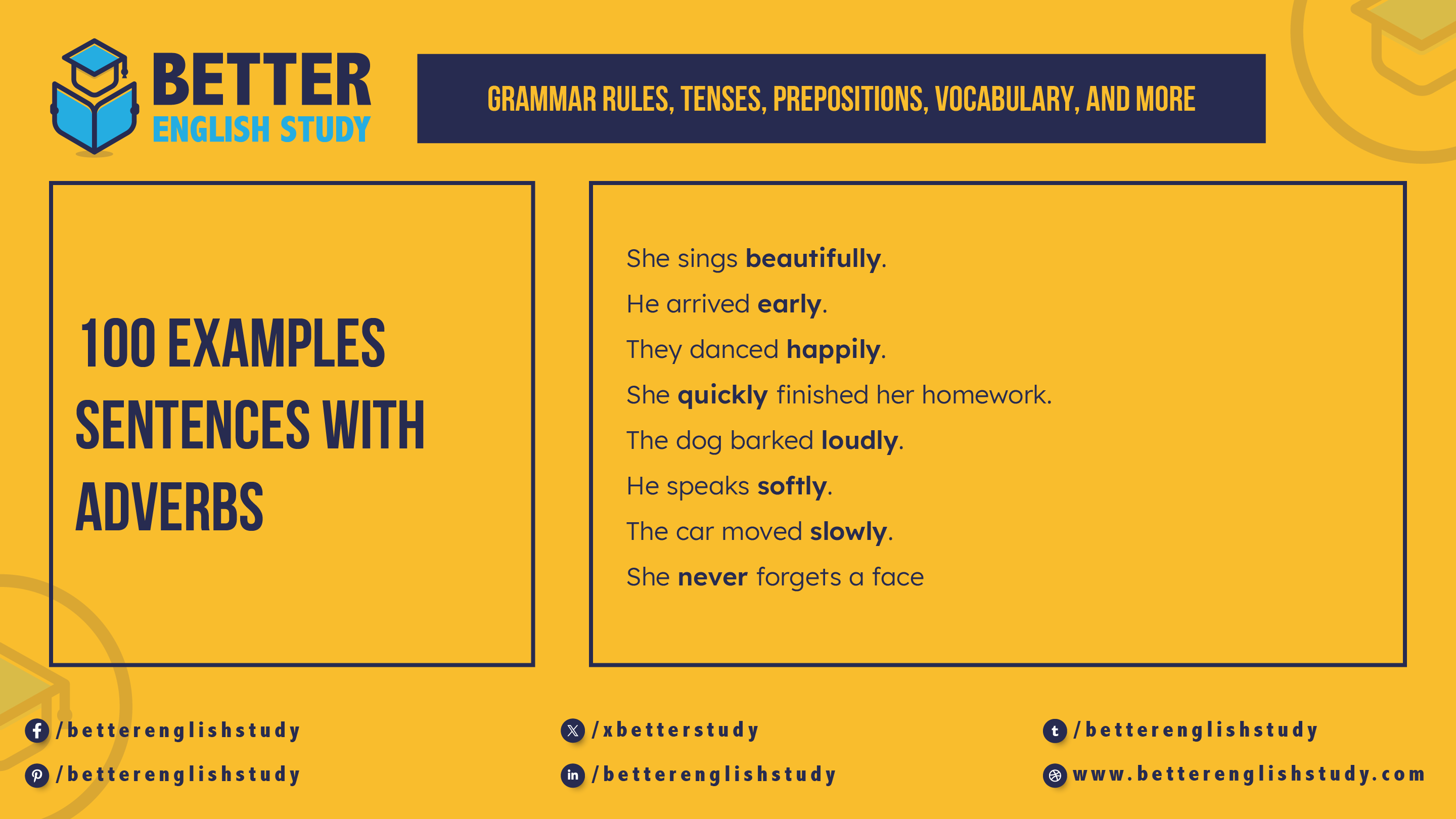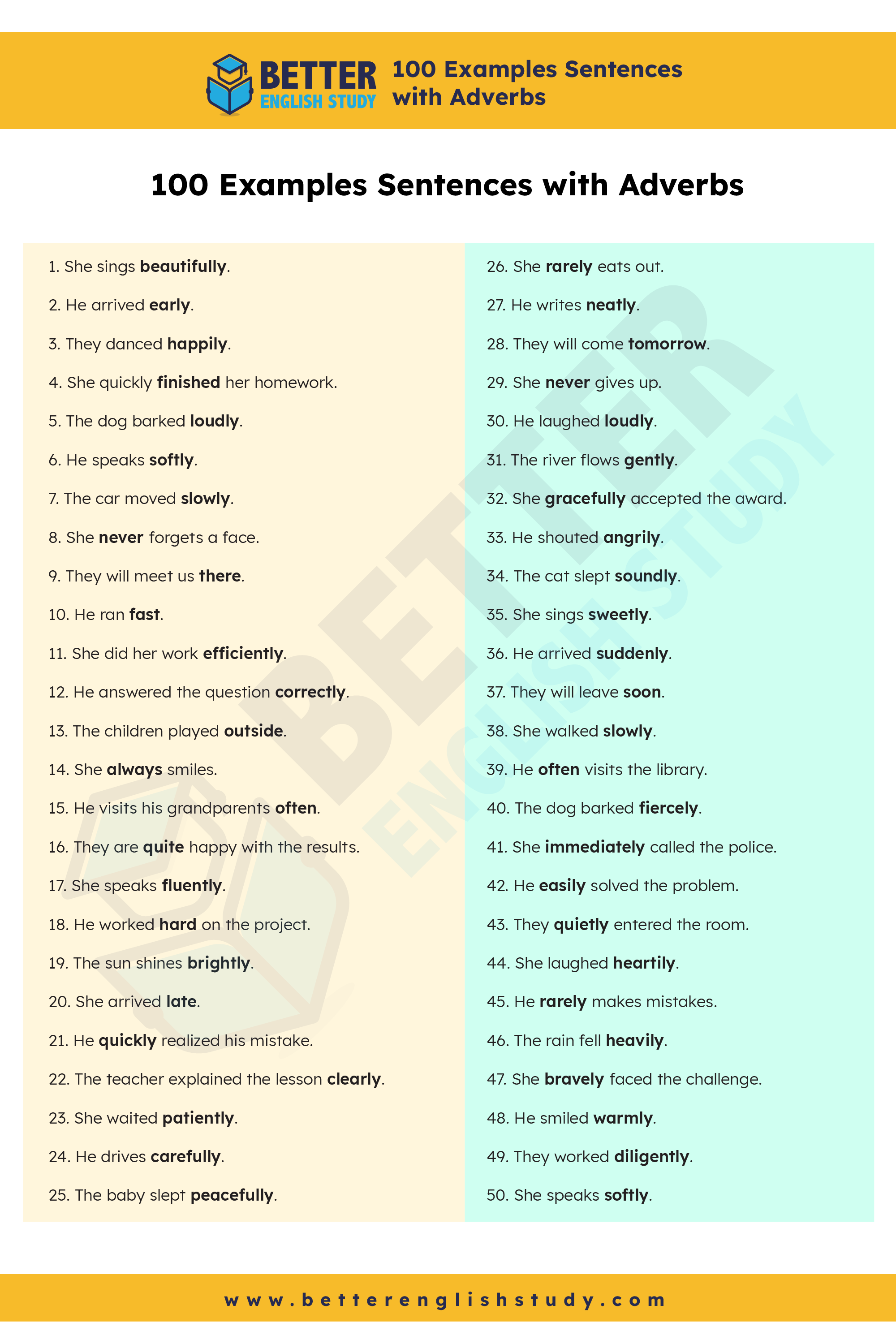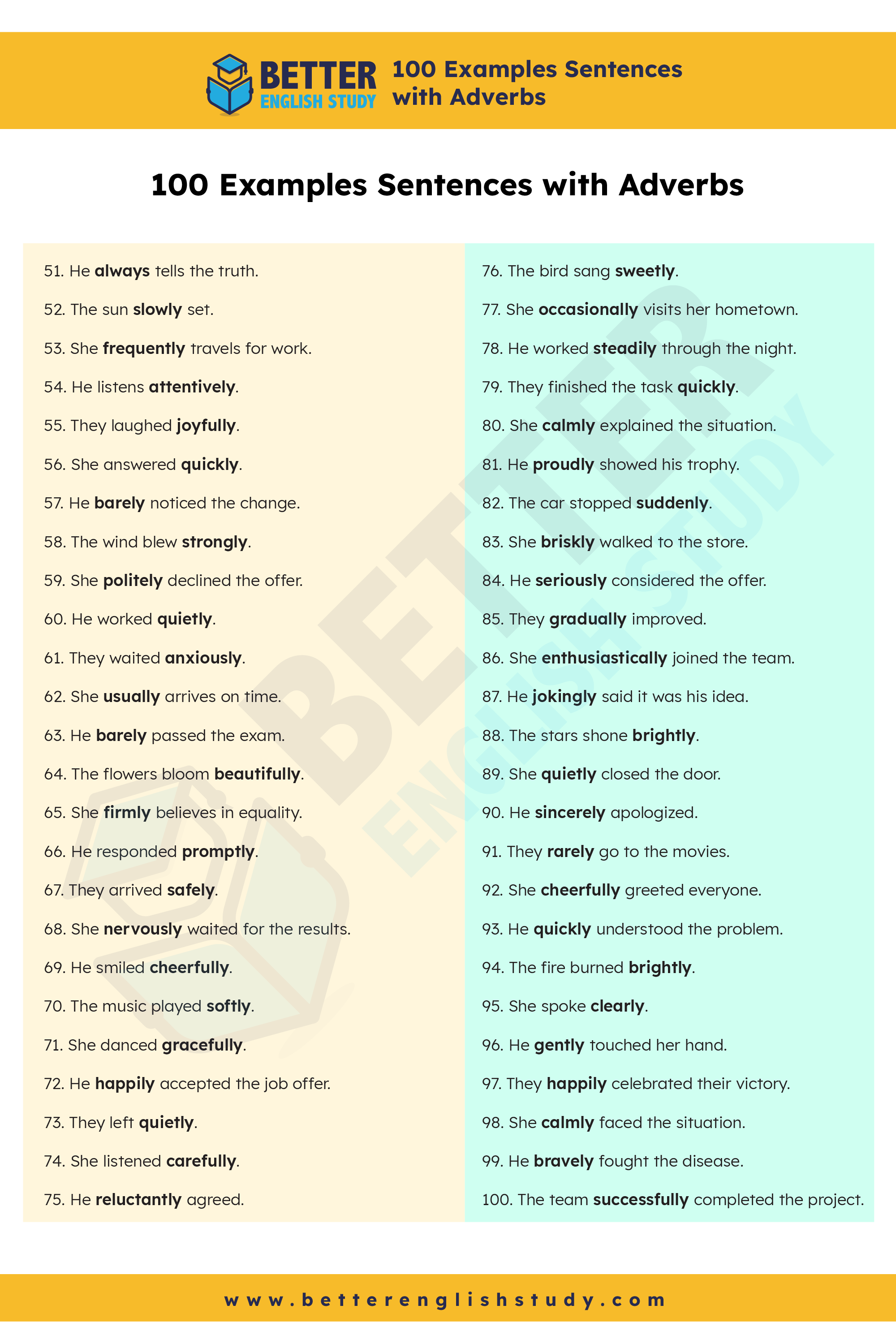
Adverbs are a crucial part of the English language, adding depth and detail to your sentences by modifying verbs, adjectives, or other adverbs. They help convey how, when, where, and to what extent something happens.
This article will explain what adverbs are and provide you with 100 example sentences to help you understand how they work in context.
What Are Adverbs in English?
Adverbs are words that modify verbs, adjectives, or other adverbs, providing more information about how, when, where, or to what extent an action is performed. They often end in “-ly,” but not always. Adverbs answer questions like “How?” “When?” “Where?” and “To what extent?”
For example:
- She sings beautifully. (How does she sing?)
- He will arrive soon. (When will he arrive?)
- They played outside. (Where did they play?)
- The coffee is very hot. (To what extent is the coffee hot?)
Adverbs can greatly enhance your sentences by adding precise details and clarity.


100 Examples Sentences with Adverbs
Here are 100 sentences, each showcasing the use of adverbs. Notice how these adverbs enhance the descriptions and actions:
- She sings beautifully.
- He arrived early.
- They danced happily.
- She quickly finished her homework.
- The dog barked loudly.
- He speaks softly.
- The car moved slowly.
- She never forgets a face.
- They will meet us there.
- He ran fast.
- She did her work efficiently.
- He answered the question correctly.
- The children played outside.
- She always smiles.
- He visits his grandparents often.
- They are quite happy with the results.
- She speaks fluently.
- He worked hard on the project.
- The sun shines brightly.
- She arrived late.
- He quickly realized his mistake.
- The teacher explained the lesson clearly.
- She waited patiently.
- He drives carefully.
- The baby slept peacefully.
- She rarely eats out.
- He writes neatly.
- They will come tomorrow.
- She never gives up.
- He laughed loudly.
- The river flows gently.
- She gracefully accepted the award.
- He shouted angrily.
- The cat slept soundly.
- She sings sweetly.
- He arrived suddenly.
- They will leave soon.
- She walked slowly.
- He often visits the library.
- The dog barked fiercely.
- She immediately called the police.
- He easily solved the problem.
- They quietly entered the room.
- She laughed heartily.
- He rarely makes mistakes.
- The rain fell heavily.
- She bravely faced the challenge.
- He smiled warmly.
- They worked diligently.
- She speaks softly.
- He always tells the truth.
- The sun slowly set.
- She frequently travels for work.
- He listens attentively.
- They laughed joyfully.
- She answered quickly.
- He barely noticed the change.
- The wind blew strongly.
- She politely declined the offer.
- He worked quietly.
- They waited anxiously.
- She usually arrives on time.
- He barely passed the exam.
- The flowers bloom beautifully.
- She firmly believes in equality.
- He responded promptly.
- They arrived safely.
- She nervously waited for the results.
- He smiled cheerfully.
- The music played softly.
- She danced gracefully.
- He happily accepted the job offer.
- They left quietly.
- She listened carefully.
- He reluctantly agreed.
- The bird sang sweetly.
- She occasionally visits her hometown.
- He worked steadily through the night.
- They finished the task quickly.
- She calmly explained the situation.
- He proudly showed his trophy.
- The car stopped suddenly.
- She briskly walked to the store.
- He seriously considered the offer.
- They gradually improved.
- She enthusiastically joined the team.
- He jokingly said it was his idea.
- The stars shone brightly.
- She quietly closed the door.
- He sincerely apologized.
- They rarely go to the movies.
- She cheerfully greeted everyone.
- He quickly understood the problem.
- The fire burned brightly.
- She spoke clearly.
- He gently touched her hand.
- They happily celebrated their victory.
- She calmly faced the situation.
- He bravely fought the disease.
- The team successfully completed the project.
Adverbs add an extra layer of detail to your sentences, making them more dynamic and interesting. Use these examples as a guide to incorporate adverbs into your everyday language and enhance your English communication skills.
